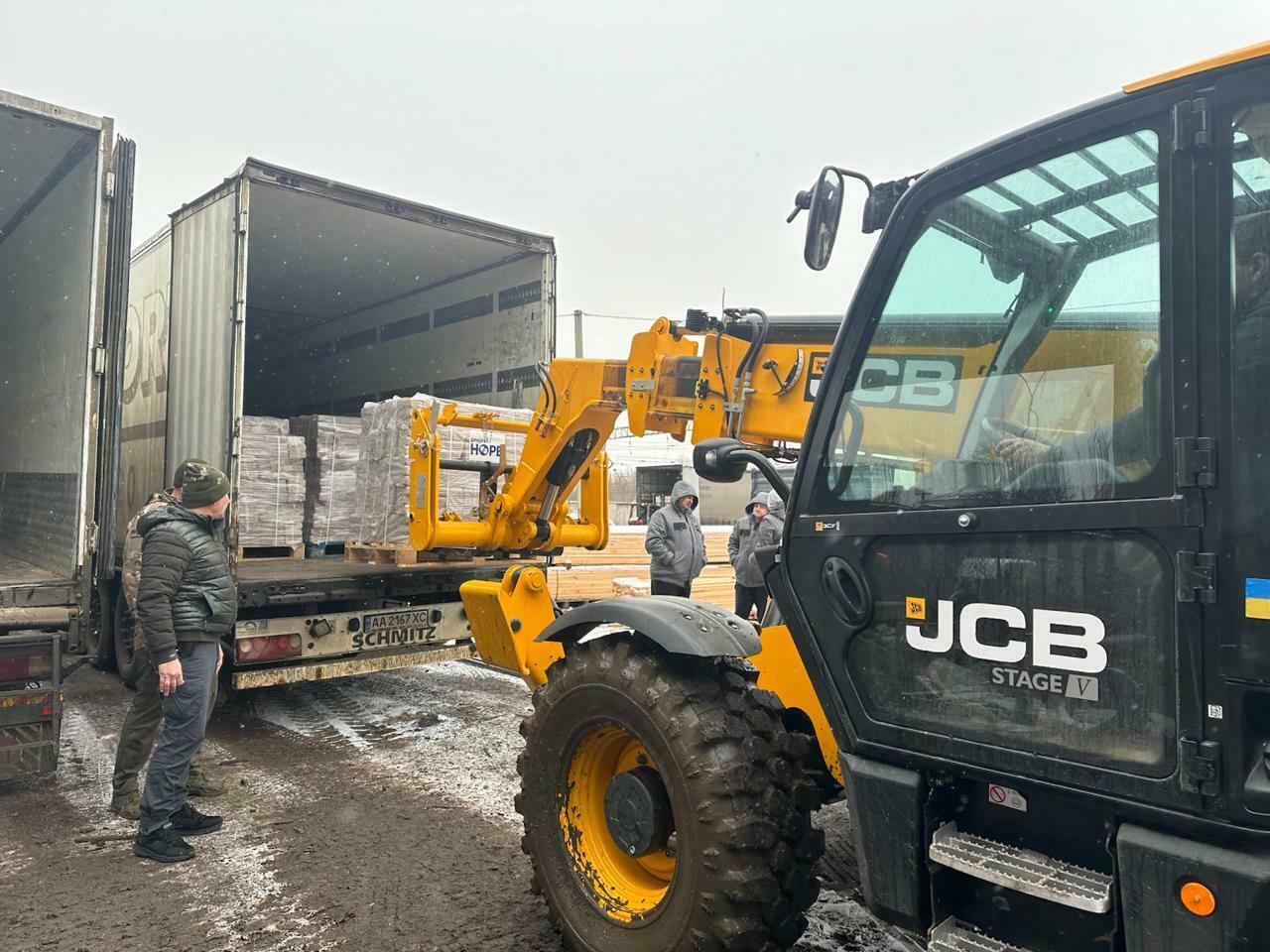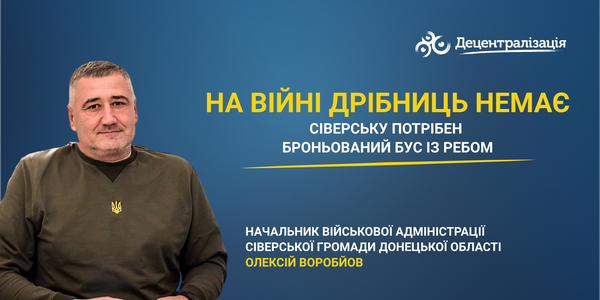‘There are no minor details in war. Siversk needs an armoured bus equipped with the electronic warfare system.’ Interview with Oleksii Vorobiov, Head of the Military Administration
Oleksii Vorobiov, Head of the Siversk City Military Administration in the Donetsk region, discusses the project to establish an agricultural town in the Zakarpattia region, the exchange of experiences with European countries, and life in a community on the front line
By Dmytro Syniak
Back in 2022, the enemy was stopped in its tracks in only a few cities in Ukraine, unable to advance any further. This was despite the numerous reckless attacks, the thousands of soldier casualties, the millions of shells and bullets fired, the hundreds of drones deployed and the dozens of missiles launched. One such city is Siversk, where fierce fighting began in June–July 2022 and continues to this day. The Russians have repeatedly claimed to have taken this small city, but each time it has turned out to be a lie. In order to reinforce the community’s defence capabilities, the Siversk City Military Administration was set up on 4 July 2022 and is led by Oleksii Vorobiov.
Since then, Siversk has effectively been on the front line, with the front line moving closer to the city on three sides over the past year. Despite these conditions, the Siversk community continues to live and fight, patiently waiting for the day when there will be no Russian soldiers on Ukrainian soil. Oleksii Vorobiov told us about the community’s day-to-day life during the war. During the conversation, he was succinct and asked several times not to ‘advertise’ his community unnecessarily, so as not to ‘bring trouble’. In the context of daily shelling, the phrase ‘bring trouble’ takes on a very specific meaning: the destruction of houses that had miraculously survived, of vital vehicles, and, most importantly, injury and even death to the people holding the defensive line.

Oleksii Vorobiov, Head of the Siversk City Military Administration
‘We will discuss that after the victory…’
What is the secret to your city’s resilience?
We will discuss that after the victory. Then, I think we will not only tell you everything, but also prove that our little city deserves the title of ‘Hero City’. For now, though, I cannot reveal any secrets.
How does the community collaborate with the military? Does it provide them with funding?
You should ask the brigades that remain in our coverage area. I would prefer not to specify exactly what we do for them. I simply do not want to draw unnecessary attention to the matter. The situation here is very complicated. Moving around is very dangerous, even in an armoured vehicle equipped with electronic warfare systems. Therefore, cooperation with the military will also have to wait until after the victory. I will only say that, throughout the Donetsk region, the local authorities are working closely with the district and regional authorities to form a powerful force against the Russians. I do not wish to downplay the role of the Armed Forces of Ukraine, but believe me when I say that the authorities at all levels are also doing a great deal to defend our community and region.
How do municipal services function amid full-scale warfare?
The most important thing is that they are still working. In the fourth year of active hostilities, this is real heroism. Of course, there is less and less work for utility workers. For example, we stopped collecting rubbish last year because it was simply impossible for safety reasons. Our main utility company is now delivering food to those remaining and evacuating people. Utility workers are doing a lot of work in general, which I do not want to discuss in detail.
How badly has your community been affected by the Russian invasion?
Around 85 per cent of houses have been destroyed. Sadly, 103 of our residents have also been killed.
How many residents are still living in the community?
Prior to the full-scale Russian invasion, the population was around 14,000, approximately 11,000 of whom lived in the city of Siversk. Now, only around 400 people remain. We ask them to leave every day, but unfortunately they hardly listen to us. We only transport these people when they are killed or bury them near their homes. Just a few days ago, three people were killed and one was wounded. They were peaceful residents who thought that they would be safe and that the danger would pass them by.
How do people live in a community without electricity, gas or running water, not to mention being subjected to daily shelling?
We have been deprived of all the benefits of civilisation for almost four years now. I do not know of any other community in Ukraine that has been deprived of a normal life for so long while remaining under siege by an enemy army. Life under bombs and shells is very dangerous, yet we endure it. While we were previously most troubled by enemy artillery, we are now dealing with enemy drones. There are more and more of them, and they can fly much further. At the same time, I would not say that those who have stayed are waiting for the Russian army. Everyone has their own reasons for staying. Most of those who remain in the community are pensioners who have lived in their homes all their lives and do not want to leave now. We are trying to change their minds by offering them decent accommodation in safe regions and providing them with financial and humanitarian aid. Most importantly, we assure them that we will not abandon anyone in need. Those who leave are convinced that this is indeed the case. All of our people are like family to us now, like one big family…
Are there any businesses left in your community, such as farmers? Your land is very fertile.
Several farmers are still working, and we are very proud of this. One of them is a truly fearless and patriotic man who harvested sunflowers just 5 km from the combat zone this autumn. Our military administration helped him, and continues to do so, in every way possible.

Many apartment buildings in Siversk look like this
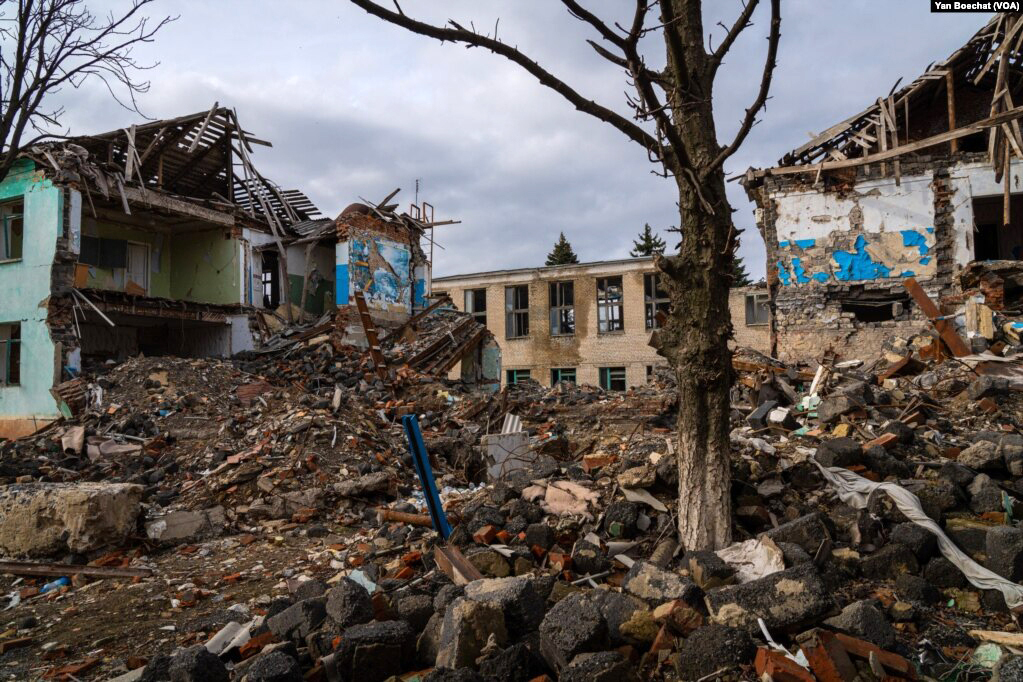
Siversk Vocational Lyceum, destroyed by the Russian army on 5 May 2022
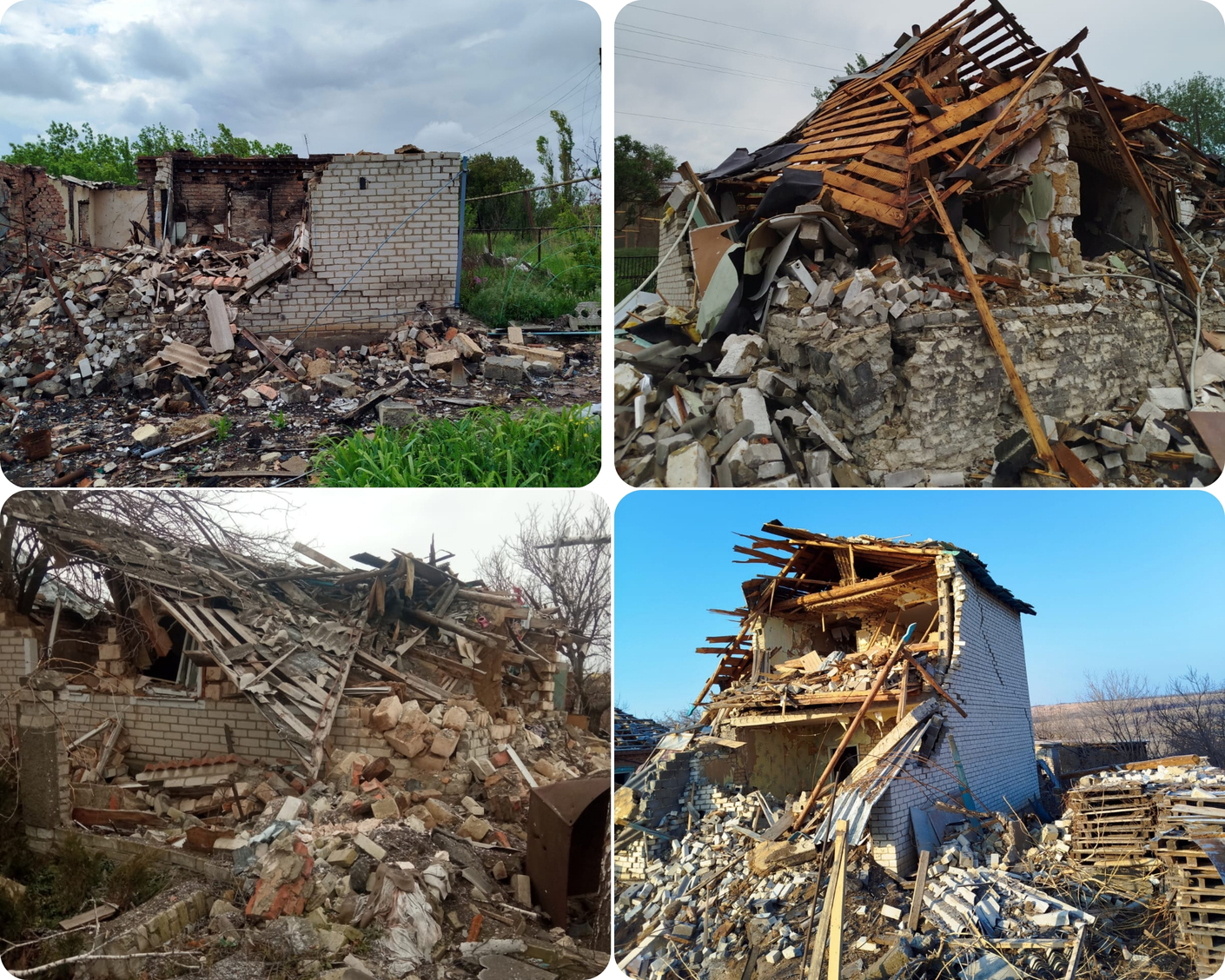
The enemy is systematically reducing the Siversk community to rubble. As a result of the Russian invasion, 85 per cent of all buildings have been damaged
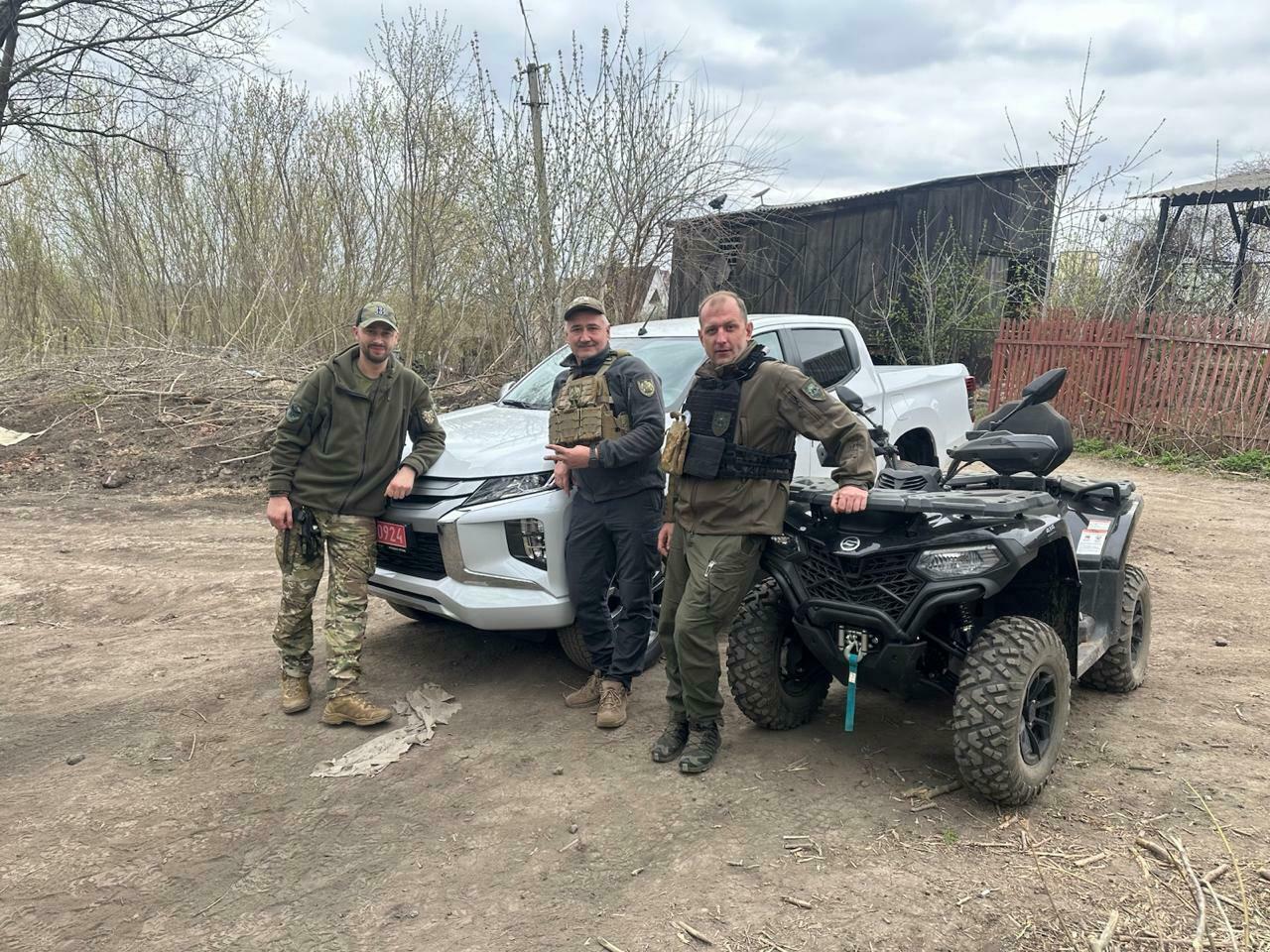
Transfer of an all-terrain vehicle and quad bike to the military. From left to right: Kyrylo Veres, Commander of the 20th Separate Brigade of Unmanned Systems K-2; Oleksii Vorobiov, Head of the Siversk City Military Administration; Roman Bolshakov, Deputy Head of the Bakhmut District State Administration
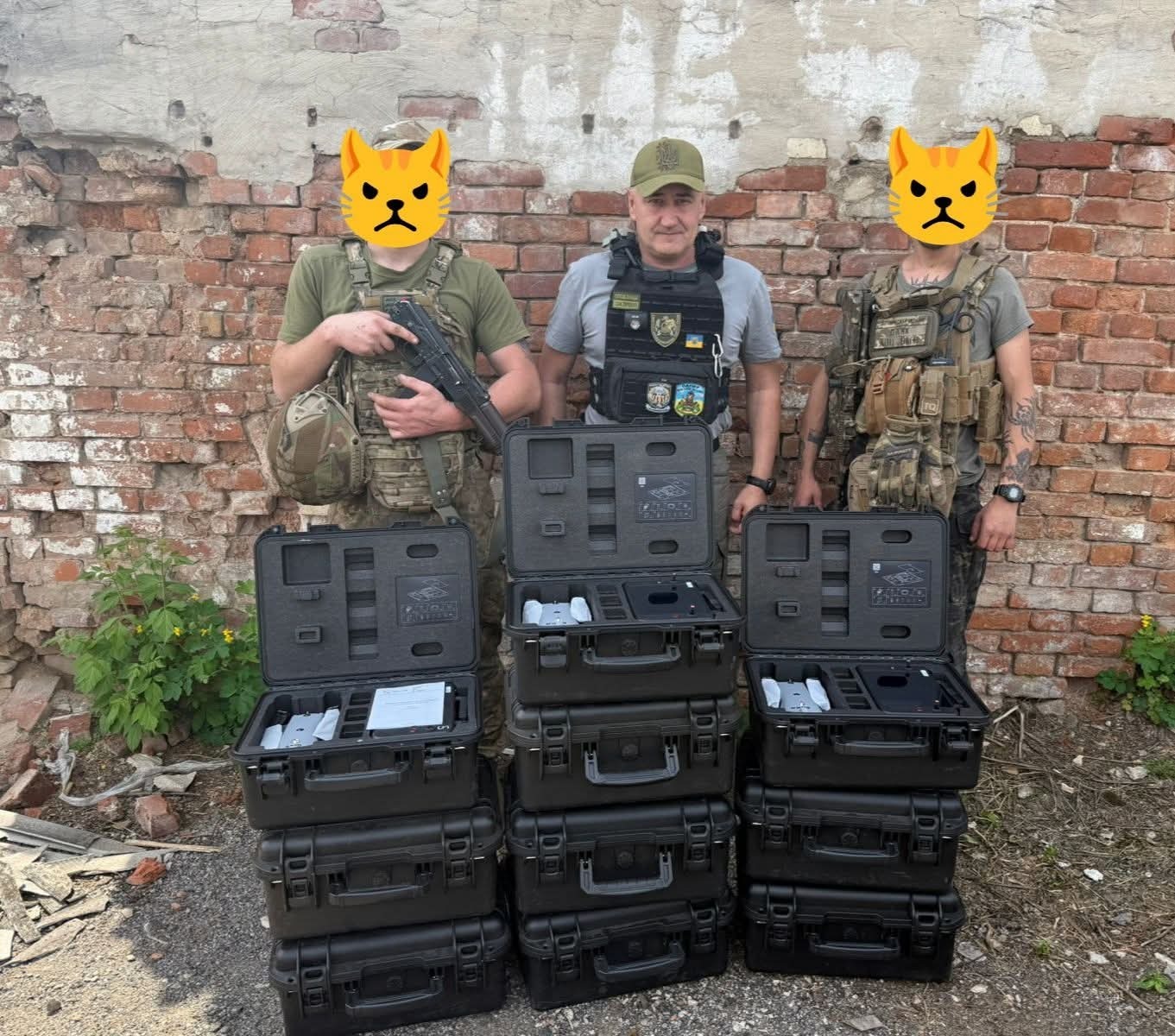
Oleksii Vorobiov, Head of the Siversk Military Administration, hands over a shipment of drones to the military
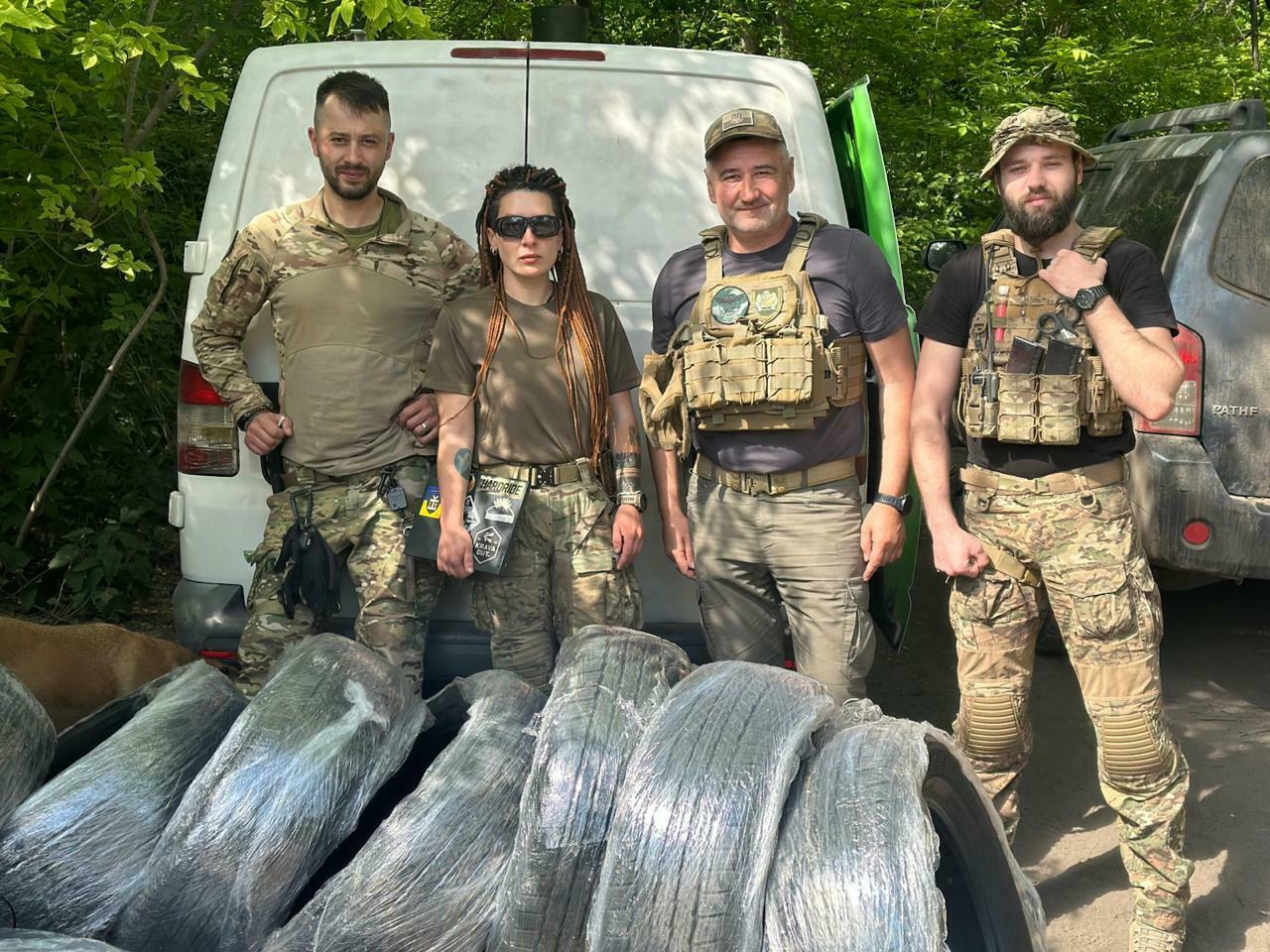
Tyres for military vehicles – from the Siversk Military Administration
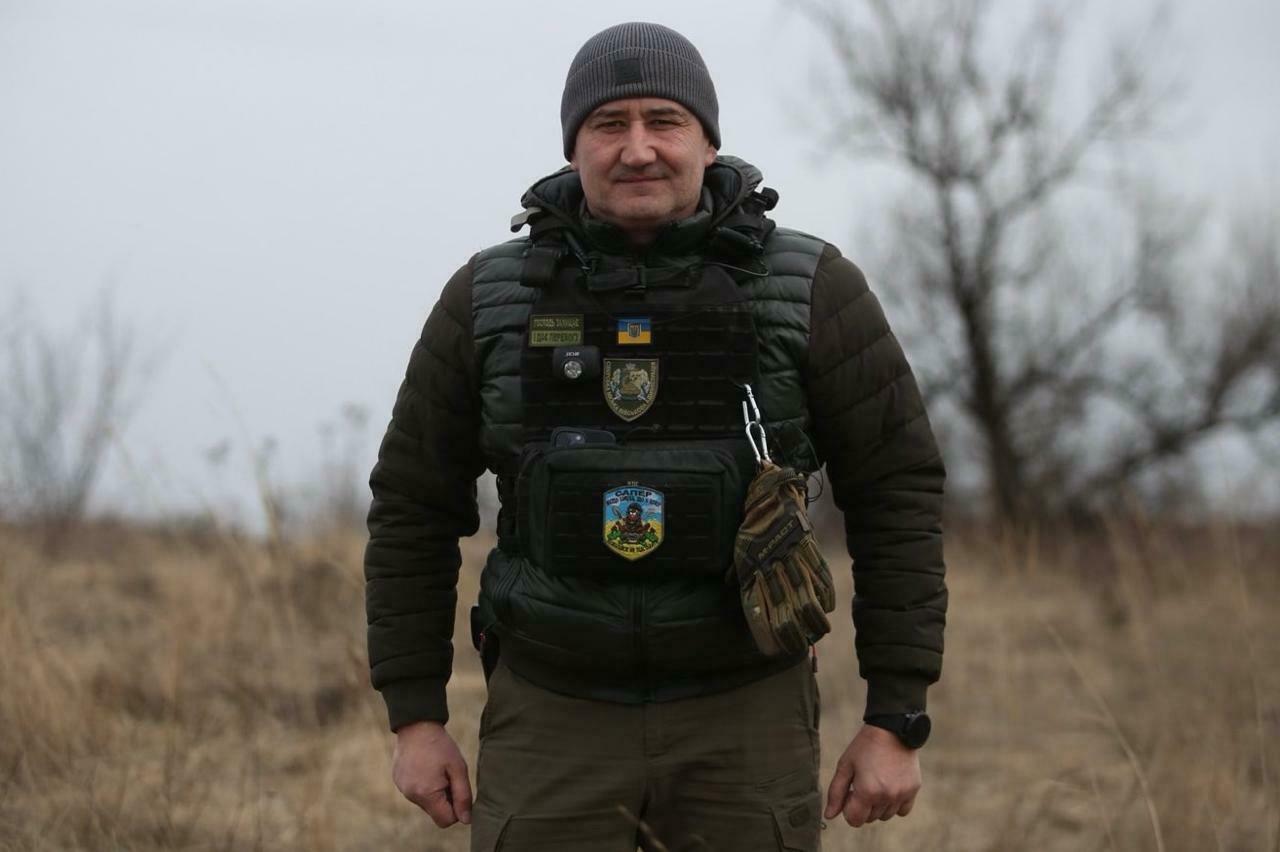
Oleksii Vorobiov in his ‘uniform’
On an agricultural town in the Zakarpattia region for residents of the Siversk community
Where do most of your residents move to?
They move all over Ukraine, but most of them go to the Dnipropetrovsk and Zakarpattia regions. In total, we are tracking over 1,900 families. Our humanitarian hubs and schools – which operate online – and our medical facilities in Zhovti Vody play an important role in this. We know the location of each of our people if they have registered somewhere. I will not hide the fact that some of our people have left for Russia. I would much rather they did not leave Ukraine and I am doing everything I can to ensure they remain in their homeland, living and working here. However, I also want them to be able to stay together: neighbours, classmates, and colleagues…
How can this be achieved?
The Onokivtsi community in the Zakarpattia region, which borders the city of Uzhhorod, is assisting us with this as part of the ‘Shoulder-to-Shoulder: Cohesive Communities’ national project. Overall, the ‘Shoulder-to-Shoulder’ is a powerful project, and I am grateful to the Government for it. Through it, the east and west, north and south of Ukraine are beginning to unite, and the country is being ‘stitched together’ and becoming more holistic. We have three partners in the ‘Shoulder-to-Shoulder’ project who are helping us greatly: they allocate funds, provide technical assistance and take our children on holiday, even sending them abroad through their colleagues. Next year, the budgets of all three communities plan to provide us with even more assistance…
Please describe your collaboration with the Onokivtsi community in more detail. What are you currently working on?
We have a great idea to build an ‘agricultural town’ for our residents. This means that they will be able to live and work in the agro-industrial complex. We also intend to build a kindergarten and a school for their children. This will help us to retain our population and preserve our regional identity. This is not just a dream of mine, but a goal that I am pursuing step by step with my team and the Onokivtsi community. We will achieve this goal no matter what, and we will do everything we can to make our people feel comfortable in their new home so that they suffer less from the loss of their old one.
What is your vision for the agro-industrial complex of the new town for displaced persons from the Siversk community in the Zakarpattia region? What exactly do you mean?
There is nothing complicated or specific about it. We are simply planning to set up an agricultural business in the city. In particular, we plan to grow a variety of greens, which are in high demand and expected to become even more popular in the future. We also intend to establish a rehabilitation programme for veterans based on this agro-industrial complex. Our residents are very supportive of this idea. Currently, they mainly expect humanitarian aid from us, which is much easier to provide when our people live nearby. While we try to send such aid to everyone every quarter, it is clear that it is primarily received by those who stick together – those who we see, so to speak, and who turn to our humanitarian hubs. However, my goal is to make people economically independent so that they do not need any assistance. This will give them the opportunity to feel confident and not consider leaving the country.
What is the general feeling among residents of your community? Would they like to return to their homes as soon as doing so becomes possible?
In October, we conducted a survey of residents in our community. Over 1,000 families expressed a desire to live together in an agricultural town in the Zakarpattia region. However, if the situation permits and the government makes the relevant decision, they are willing to return to the Siversk community – provided that housing and infrastructure are rebuilt there, of course. However, it is too early to talk about this now. For the time being, we must defend the city.
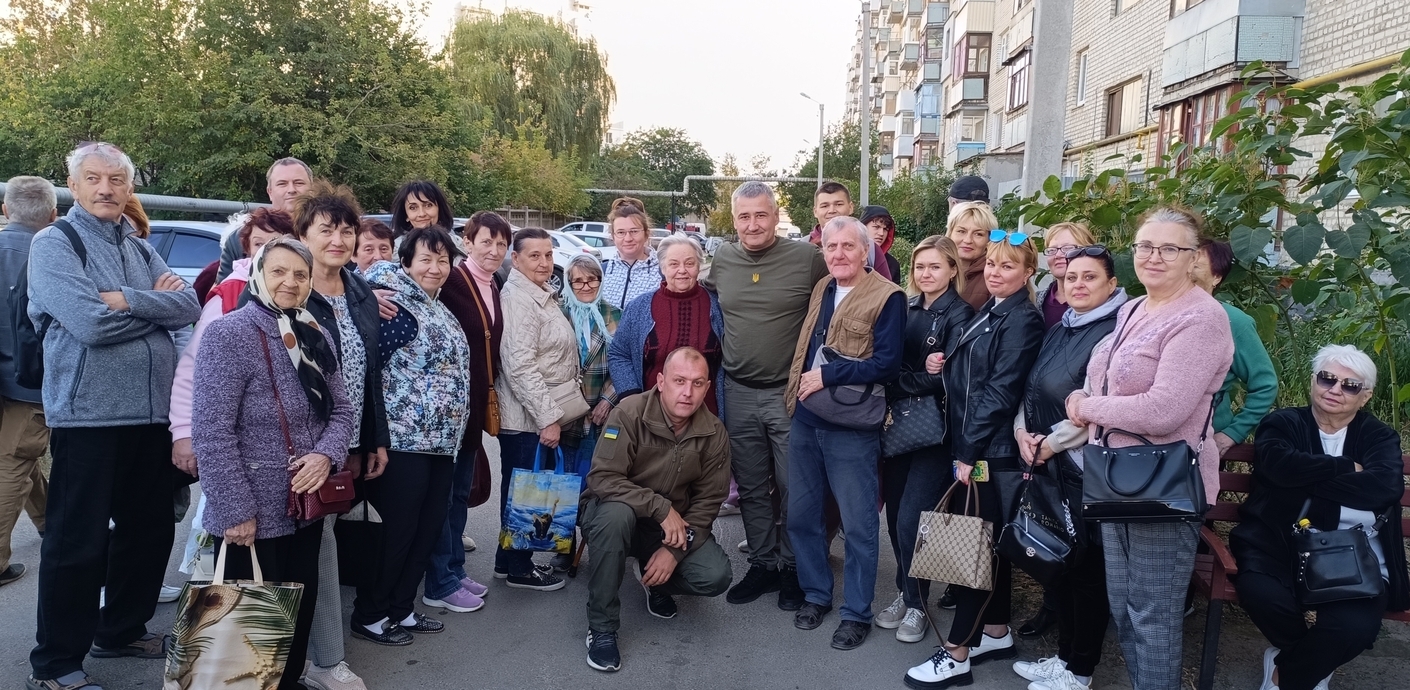
Meeting with residents of the Siversk community in Kharkiv after distributing humanitarian aid. In the centre (standing) is Oleksii Vorobiov, Head of the Siversk City Military Administration, and (seated) is Roman Bolshakov, Deputy Head of the Bakhmut District State Administration
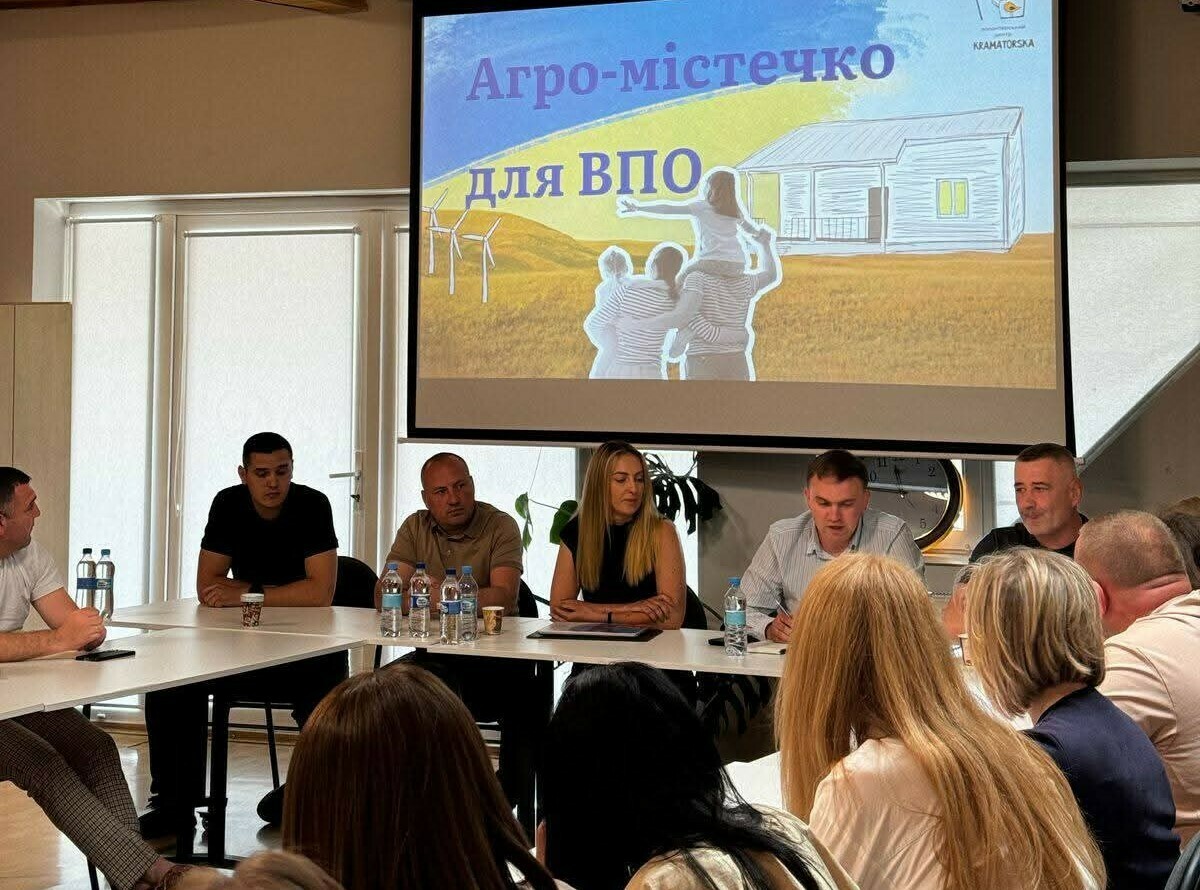
Report on the creation of an agricultural town for displaced persons from the Siversk community in Onokivtsi village, Zakarpattia region
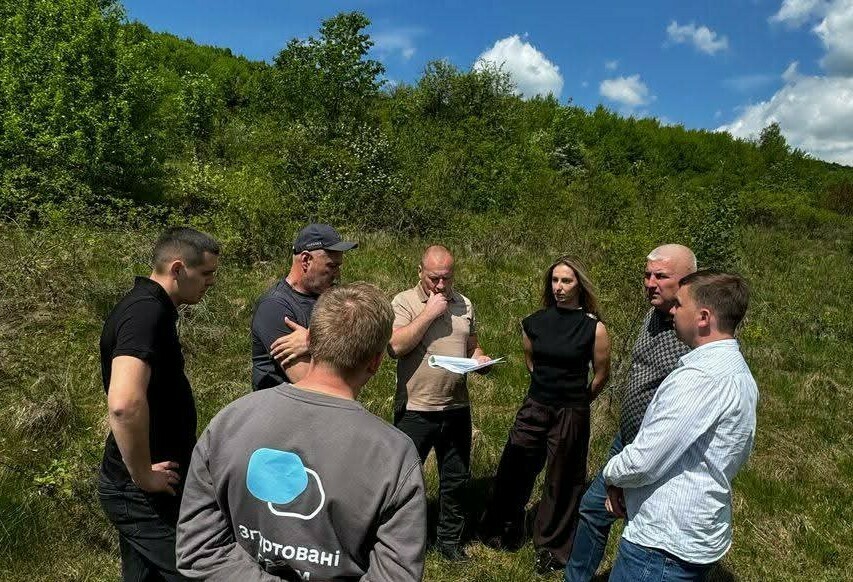
Yevhen Leiba, Acting Head of the Onokivtsi Village Council (left), next to him – Oleksii Vorobiov, Head of the Siversk City Military Administration, all others – representatives of the Ministry for Development of Communities and Territories of Ukraine and representatives of the Kramatorsk Volunteer Centre Charitable Foundation. The working meeting is taking place on a plot of land in the Onokivtsi community, where there are plans to build an agricultural town for displaced persons from Siversk
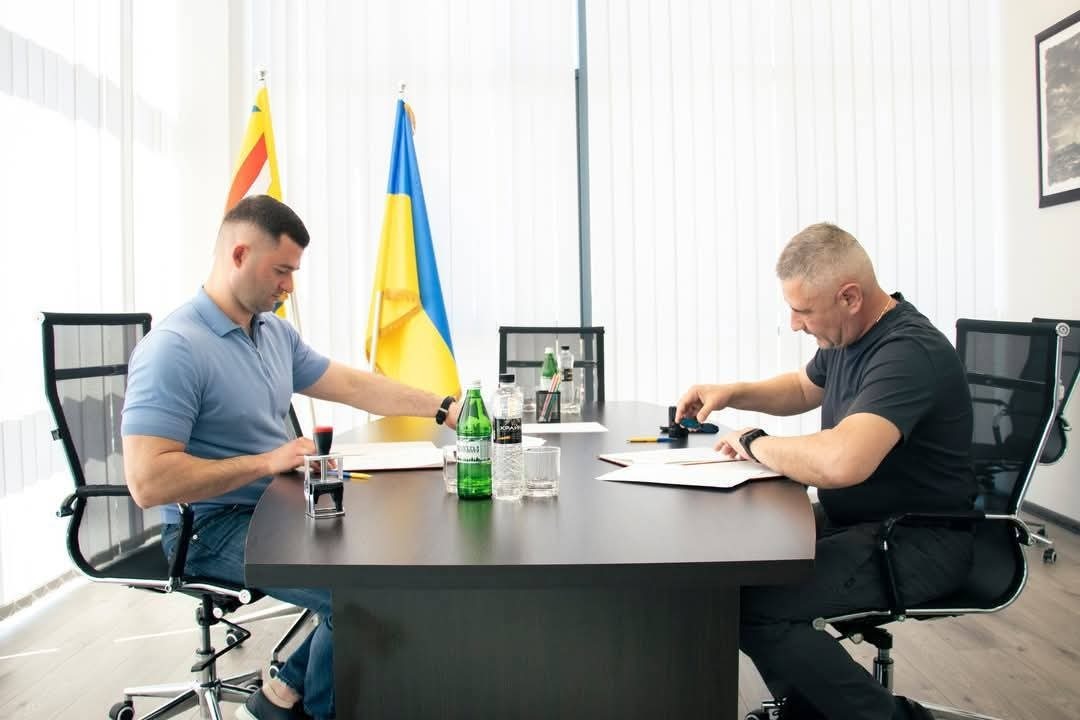
Signing of a memorandum of cooperation between the Siversk and Mukachevo communities. On the left is Andrii Baloha, Mayor of Mukachevo, and on the right is Oleksii Vorobiov, Head of the Siversk City Military Administration. Mukachevo, 29 April 2025
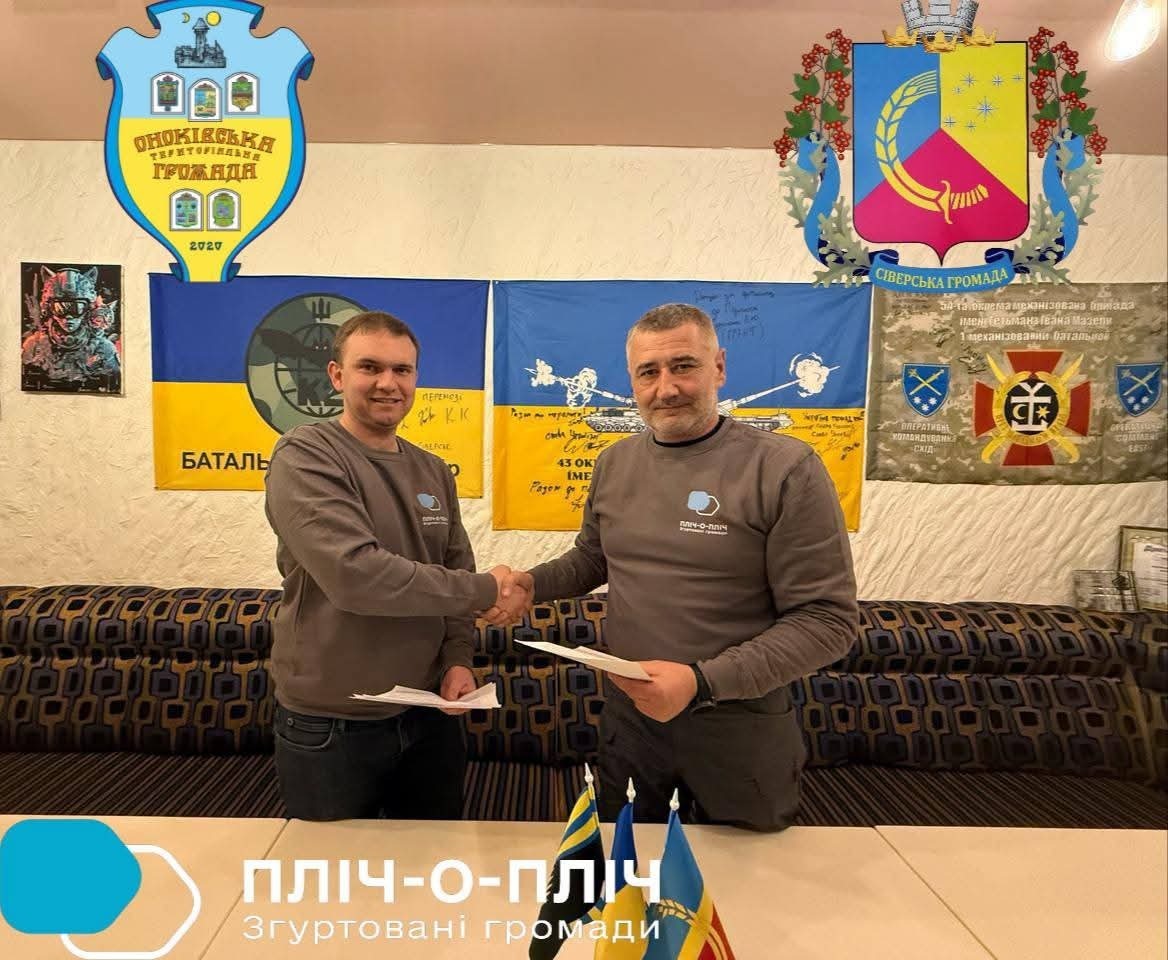
Signing of a memorandum of cooperation with the Onokivtsi community within the ‘Shoulder-to-Shoulder: Cohesive Communities’ project. Yevhen Leiba, Acting Head of the Onokivtsi Village Council (left), and Oleksii Vorobiov, Head of the Siversk City Military Administration. Kramatorsk, 27 March 2025
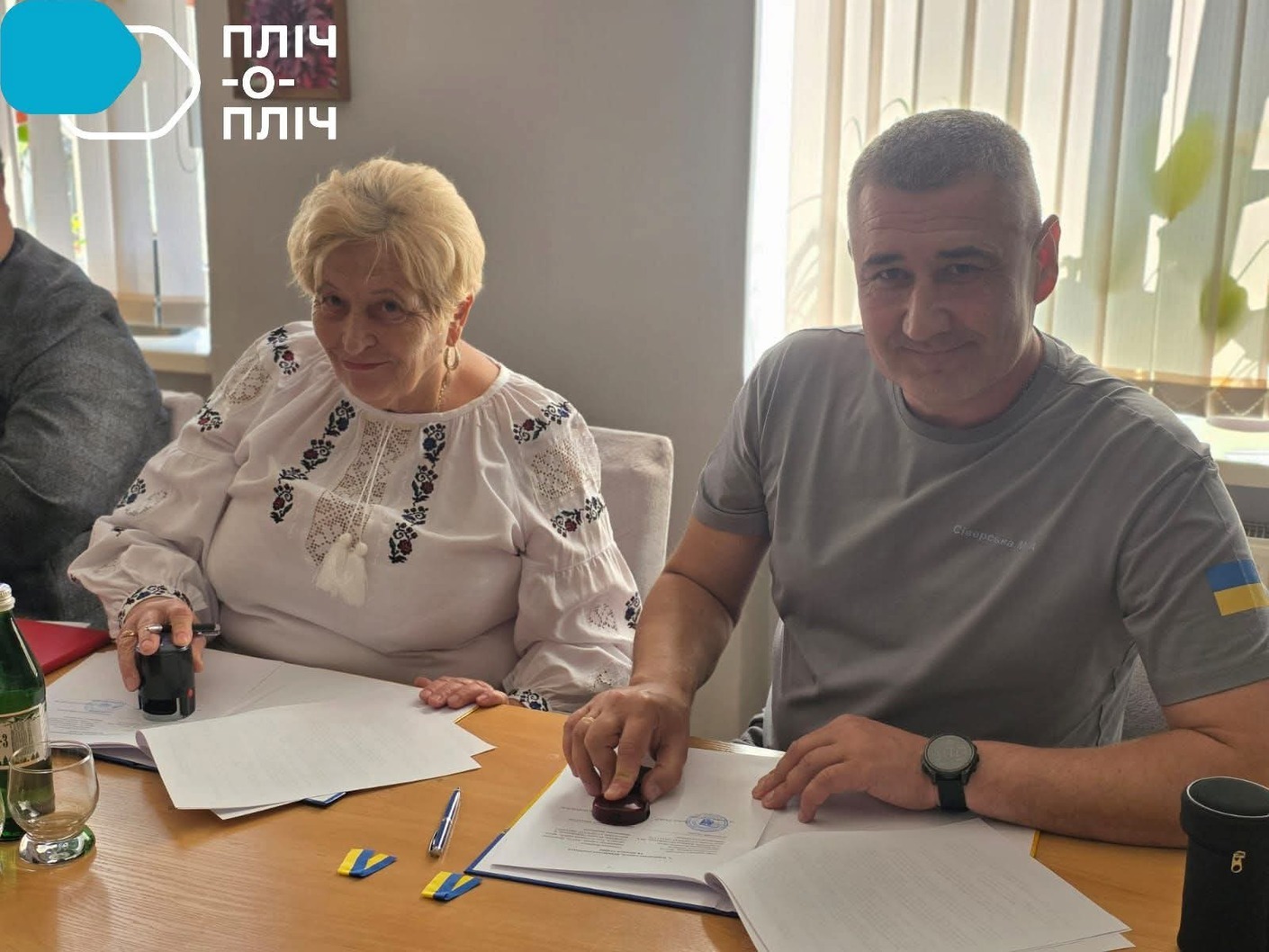
Signing of a memorandum of cooperation with the Dubrynychi-Malyi Bereznyi community within the ‘Shoulder-to-Shoulder: Cohesive Communities’ project. Next to Oleksii Vorobiov is Liubov Laver, Head of the Dubrynychi-Malyi Bereznyi community. Dubrynychi village (Uzhhorod district, Zakarpattia region), 1 May 2025
‘We would be extremely grateful for a minibus equipped with the electronic warfare system…’
Is the creation of an agricultural town the only area in which the Siversk and Onokivtsi communities cooperate?
We are also launching a project to facilitate the comprehensive exchange of experiences. Recognising the challenges of wartime, the Onokivtsi community staff are learning from us how to work in the conditions of combat operations and proximity to the front line. In turn, they are sharing their experience of working with foreign partners with us. Thanks to this project, I am convinced that we will learn a lot from each other. Recently, we had partners from Germany visit us. They said they were impressed by how we work in wartime conditions. They believe that this experience is invaluable for communities in Poland and the Baltic states. Having developed expertise in transferring this experience, we will be happy to share it with foreign communities in the future.
Do you receive funding from your partners within the ‘Shoulder-to-Shoulder: Cohesive Communities’ project? If so, how much do you receive?
I would prefer not to disclose any figures in order to avoid compromising our partners. What would happen if Russia were to reduce this funding by launching missile strikes on partner communities? Here, on the front line, such a scenario seems highly likely. On 21 August 2025, Russia attacked the Mukachevo community, one of our partners in the ‘Shoulder-to-Shoulder: Cohesive Communities’ project, causing enormous damage to the community. Was this partly due to the tremendous assistance we received from the Mukachevo community? Who knows…
Does the Siversk community receive assistance from international donor organisations?
Yes, of course – from many of them. We are extremely grateful for that. I am particularly proud of our memorandum of cooperation with the American city of Weston in Connecticut. Thanks to this agreement, our children have had the opportunity to rest and undergo psychological rehabilitation in the United States for the third consecutive summer. Weston also sends Christmas gifts to our children every year. When charitable organisations from around the world lend us a helping hand, we have more opportunities to support the military. That is how it works now.
Is there anything you would like to change in the legislative framework or government regulations? Are there any regulations that hinder your work?
I feel that the current structure of our cooperation with the central government is very satisfactory. If certain regulations hinder our work, we submit proposals to the head of the regional administration and the regulations are changed quickly. Furthermore, it is not only the head of the regional administration who takes a personal interest in our issues – I have met with the president three times this year. This means that communities like ours receive special attention, which is excellent.
What does your community need? In what ways could other communities, charitable foundations and businesses that are interested in strengthening Siversk support you?
We urgently need an armoured minibus to evacuate people and deliver essential supplies. Please write about this and hopefully someone will respond. We would be extremely grateful for a diesel, four-wheel drive minibus, which we will ‘armour’ at our own expense. We urgently need it for our work right now. If this minibus also comes with powerful electronic warfare equipment, words cannot express our gratitude.
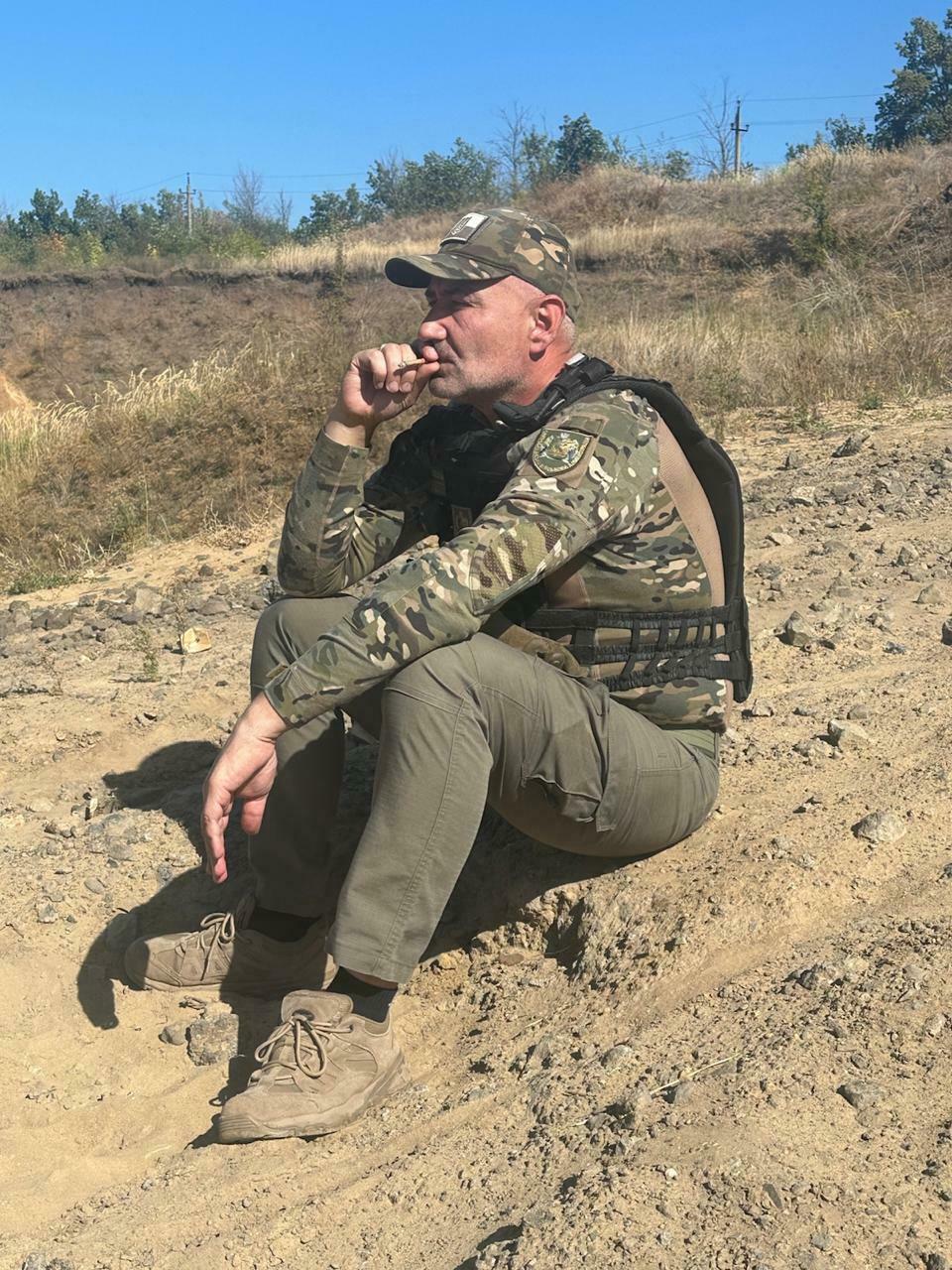
Oleksii Vorobiov at work
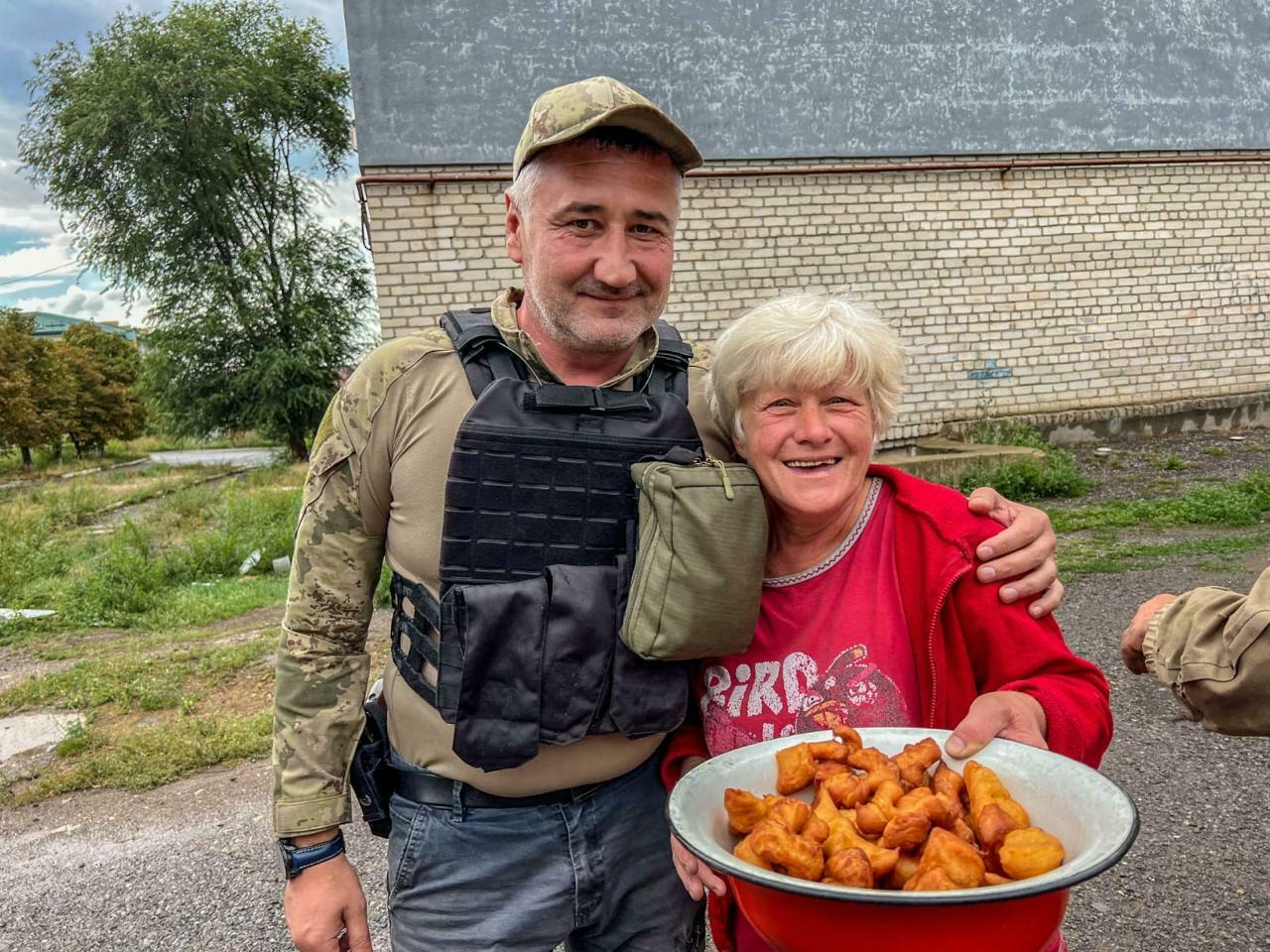
Siversk resident baked varenyky to thank Oleksii Vorobiov for delivering humanitarian aid, 2023
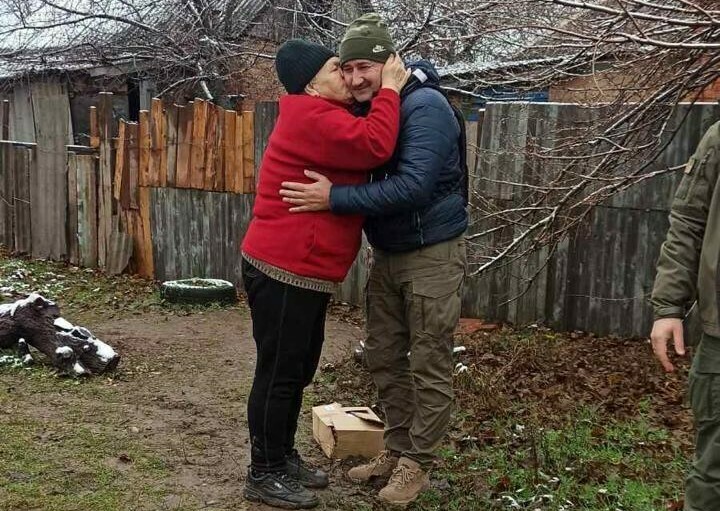
Heartfelt gratitude for the life-saving humanitarian aid
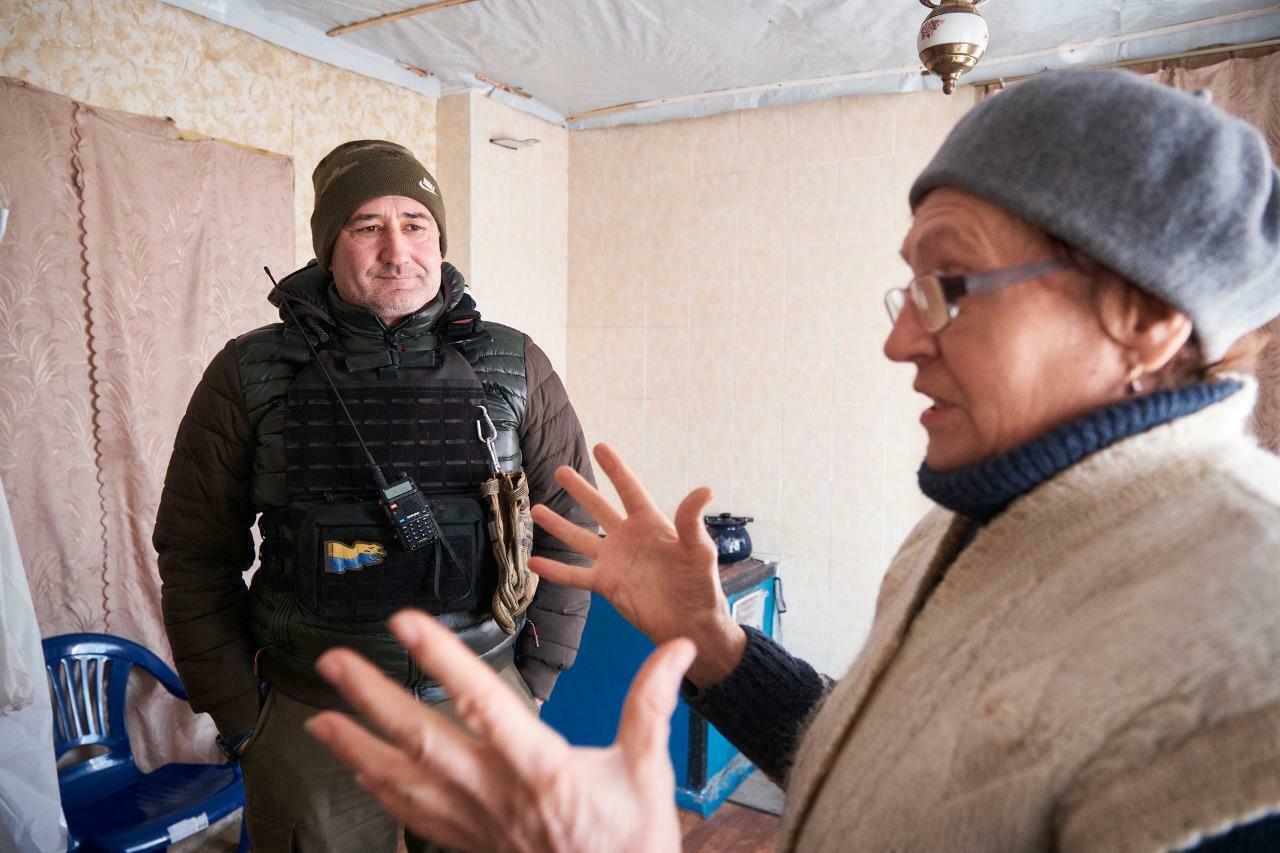
Talking to Alla Trubachova, the community’s family doctor, at a temporary medical station in Siversk. Photo taken in April 2025. Now this medical station has been destroyed by the enemy
Unloading fuel briquettes for residents of the Siversk community, autumn 2024
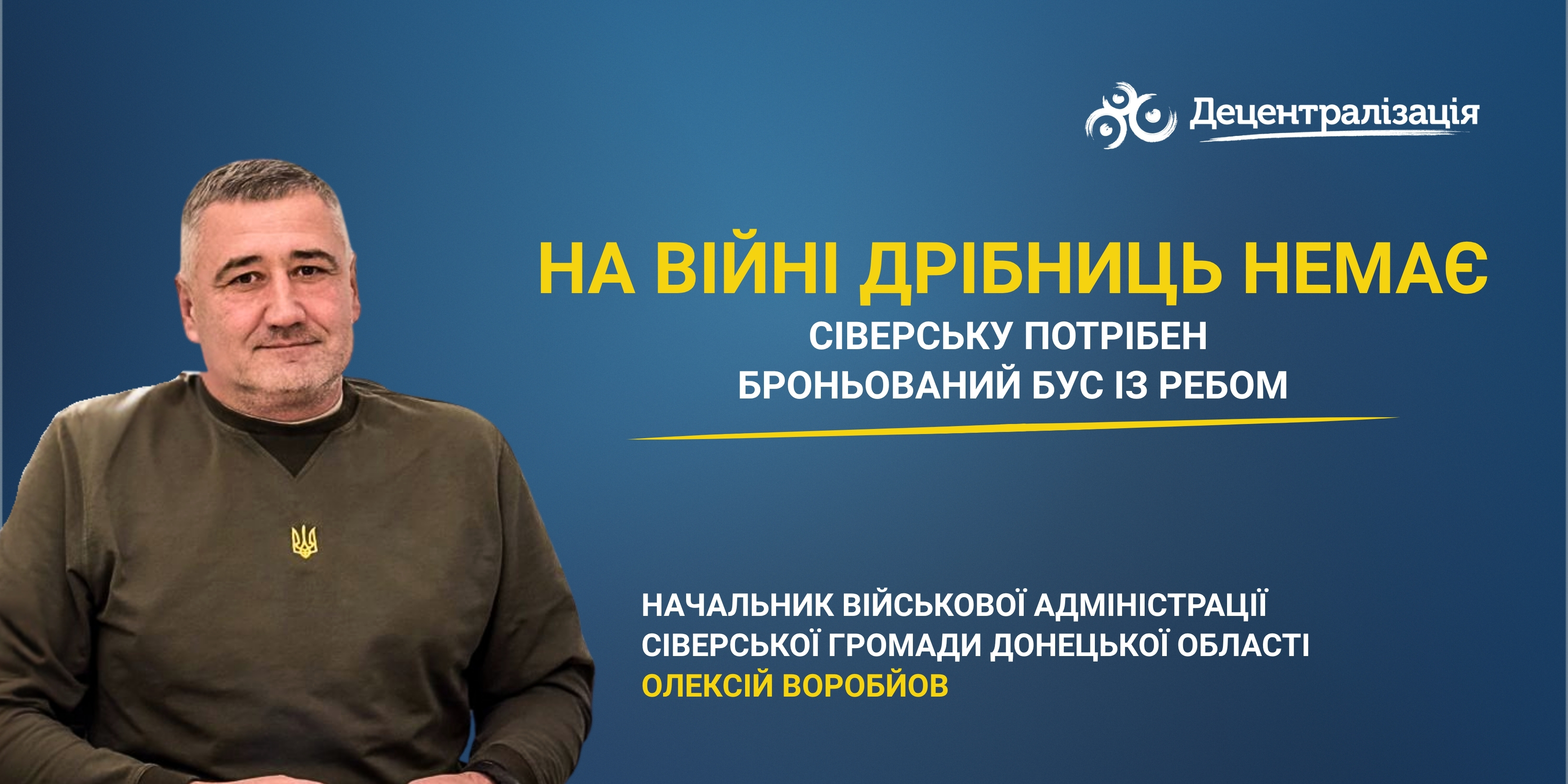
17 February 2026
Ресурсоменеджмент для громад: що (не)робити з відходами, аби вони стали ресурсом
Ресурсоменеджмент для громад: що (не)робити з...
Той, хто володіє ресурсами, володіє світом. Звична логіка керівництва країн, які владу вимірюють покладами...
17 February 2026
Sylna hromada: Systemic recovery as the foundation for Ukrainian resilience
Sylna hromada: Systemic recovery as the...
Four years of Russia's full-scale war against Ukraine have led to the massive destruction of critical infrastructure,...
17 February 2026
Уряд затвердив порядок надання субвенції на розвиток ветеранських просторів у 2026 році
Уряд затвердив порядок надання субвенції на...
11 лютого 2026 року Кабінет Міністрів України ухвалив Постанову №180, якою затверджено Порядок та умови надання у...
16 February 2026
«Гранти – не манна небесна»: як прикордонна...
Коропська громада, що на Чернігівщині, розташована в зоні підвищеної небезпеки через близькість до кордону з рф. Тут...
